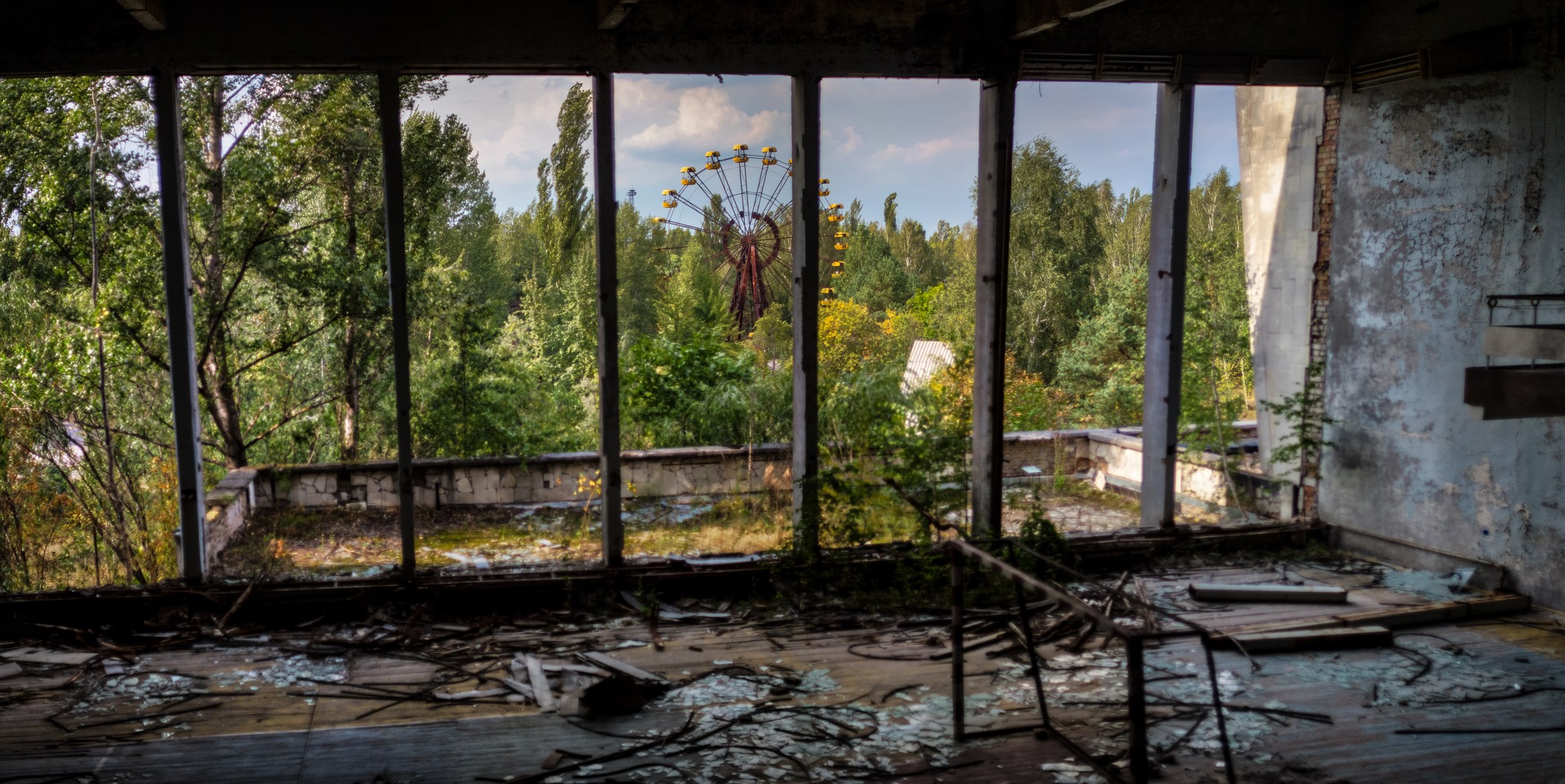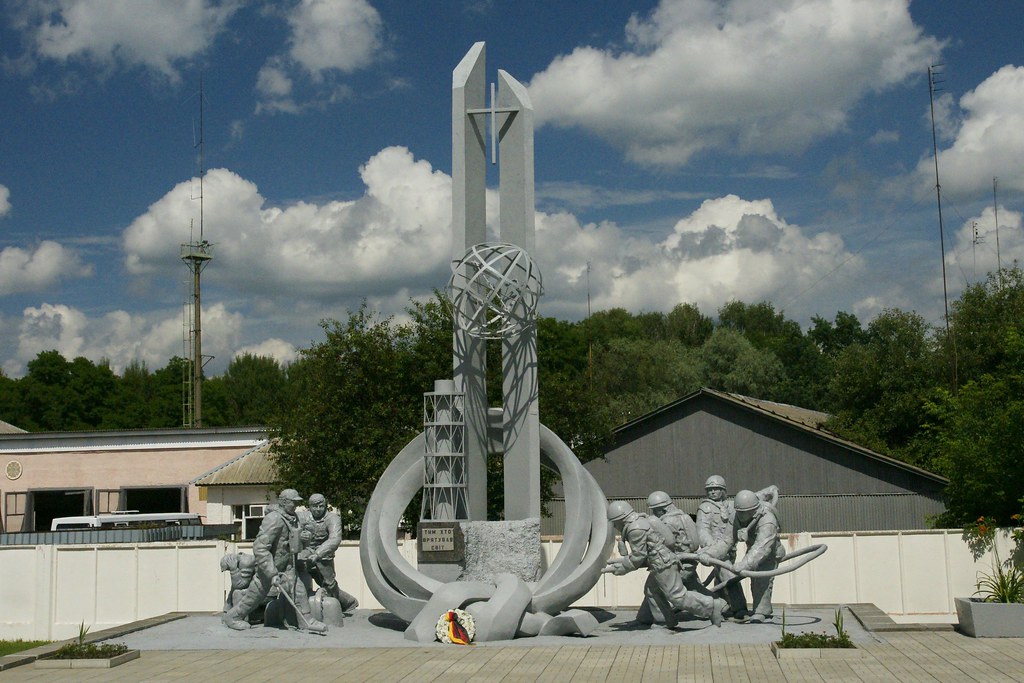HBO’s five-part mini-series documenting the 1986 nuclear power plant disaster in the Soviet Union is powerful because of the existential and moral messages it conveys—critical messages for our time.
The explosion takes place in the opening moments of the first episode. Right out of the gate, there is a clear juxtaposition between the childlike naiveté demonstrated by the control room operators on one hand, and the microcosm of the universe that is the nuclear explosion on the other. For many of the characters, the magnitude of the event is, quite literally, beyond comprehension. At one point, a disbelieving middle manager orders an employee to climb to the top of the tower and stare directly down at the ruptured core. We are reminded of Nietzsche’s admonition that, “if you gaze long into an abyss, the abyss also gazes into you.” He turns back in a silent report on what he has seen—his face like a Munch painting, signs of deadly radiation damage already clear.
In The Myth of Sisyphus, Albert Camus describes the absurdity of the human experience. There are moments when this absurdity hits us with full force—the universe is not the kind of thing that cares about the desires of human beings. Camus describes these moments of recognition, “At this point of his effort man stands face to face with the irrational. He feels within him his longing for happiness and for rationality. The absurd is born of this confrontation between the human need and the unreasonable silence of the world.” At Chernobyl, rather than silence, the indifference is signaled by a ceaseless, pulsating hum.
Camus also describes absurd heroes—people who, in full recognition of the absurdity of their situation, respond to that absurdity authentically. The miniseries tells the true stories of the truly stunning number of people who were willing to charge into situations in which completion of the required task was unlikely and death was seemingly certain. In this way, it is an inspiring tale of human resilience and spirit.
In fact, despite the existential premise, much of the story motivates the intuition that, despite our insignificance from the perspective of the universe, the choices we make now really do matter now, and that virtue should be pursued and vice avoided. Chernobyl was a disaster of unimaginable proportions, but were it not for the actions of those who gave their health and even their lives in the service of others, it could have been much worse. The series highlights the value of courage as a virtue. It also explores the perils of blind ambition as a vice. The accident happened as a result of decisions that had foreseeable bad consequences, but those involved in the bad decision-making valued their own promotion over the safety of others.
Some of the most significant lessons from Chernobyl are epistemic—they have to do with how we form our beliefs and what we regard as knowledge. The tragedy of Chernobyl highlights the consequences of confusing power with expertise. This message is always important and is especially salient today. Chernobyl demonstrates how dangerous fallacious appeals to authority can be. Sometimes, powerful figures are presumed to be truth tellers or experts simply because they happen to be in power. Attaining knowledge can be hard work, and we should respect the process. This doesn’t mean that we should blindly accept the pronouncements of anyone with a PhD, but we should recognize that, for example, physicists know more about nuclear reactions than government bureaucrats. Similarly, climate scientists know more about global warming than presidents or the CEOs of oil companies.
Viewers are left with a better understanding of how dangerous it can be when people are put in charge of things that they know very little about. Powerful positions should not be doled out based on nepotism or on past support or level of loyalty, but should instead be based on knowledge base and experience level. Lack of qualification is easily obfuscated when times are good. Perhaps these appointments should always be made with the understanding that times can get very, very bad extremely quickly.
The series also speaks to the peril to which wishful thinking can give rise. Some beliefs are comforting, pleasant, and familiar. These aren’t good reasons for thinking those beliefs are true. When lives are on the line, it is important that we believe and act on what the best evidence supports, rather than believing whatever our strongest desires motivate us to believe.
Finally, the series is about the importance of speaking truth to power. Truth telling is important because lies have consequences—especially when those lies are about the finer details of nuclear power plants. When the government is the body doing the lying, the effects are vast. Speaking truth to power is about more than consequences however; it is also about dignity and authenticity. A person exercises autonomy of a crucial sort when they refuse to abandon their responsiveness to reasons when faced with the coerciveness of power. Such an act makes the statement that facts don’t cease to be facts because they are inconvenient for the powerful.
We learn from Chernobyl that the consequences of letting lust for power and the fear of looking foolish can be, in the right circumstances, complete global catastrophe. There are forces that dwarf the significance of fragile human egos. Perhaps those forces should properly humble us, as we do our best to understand them.


